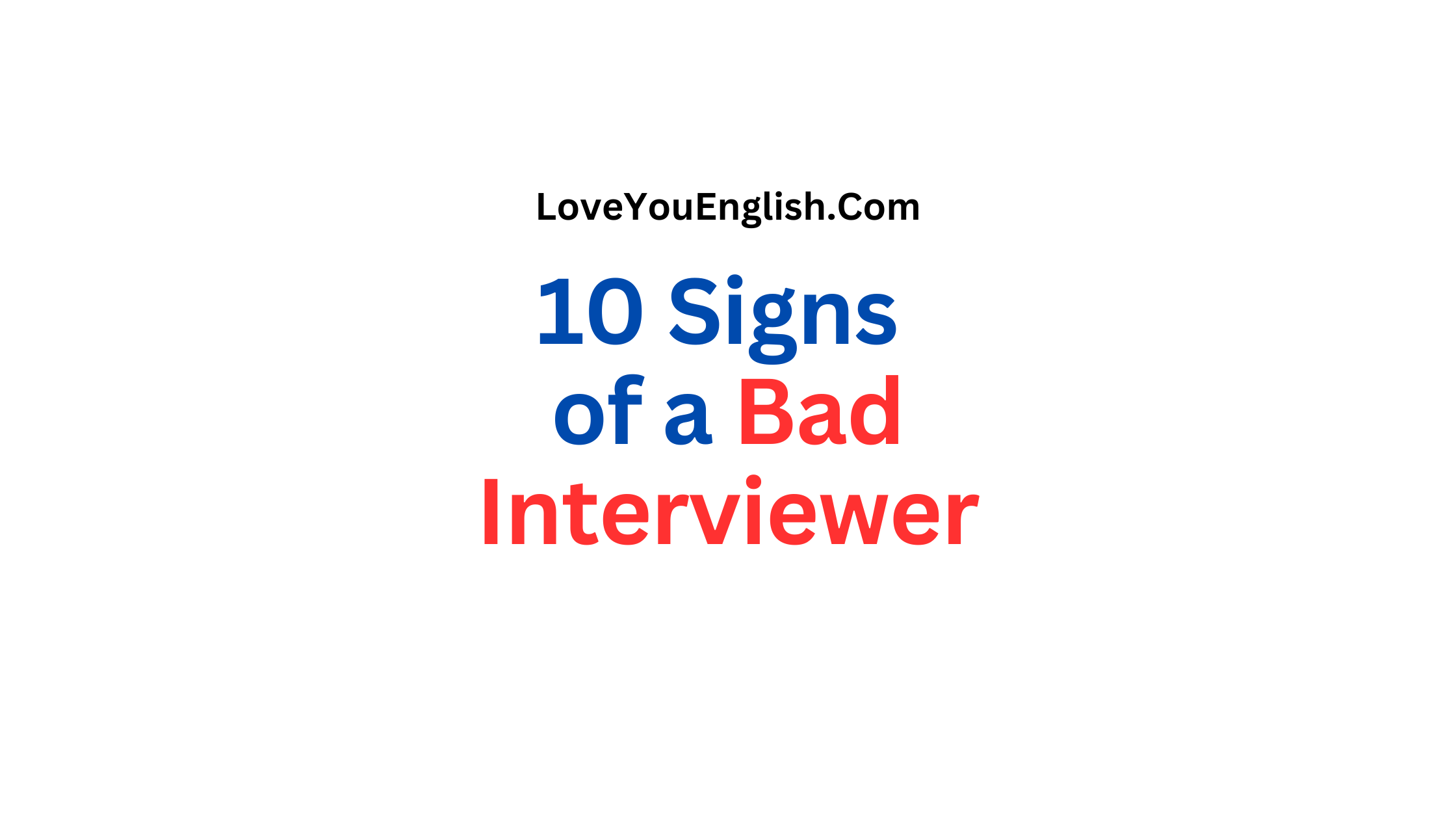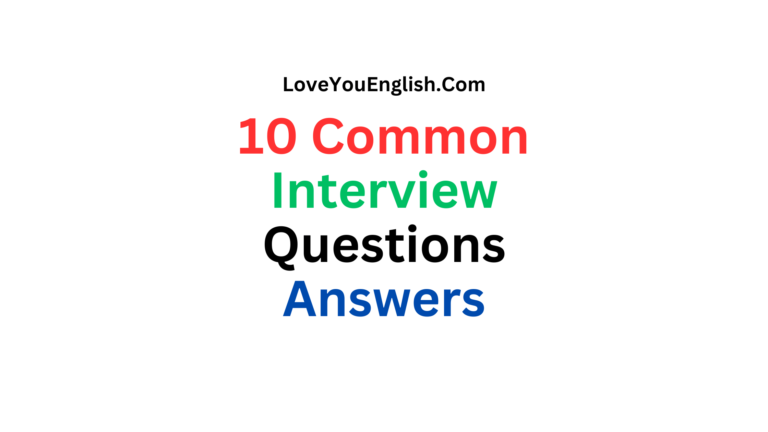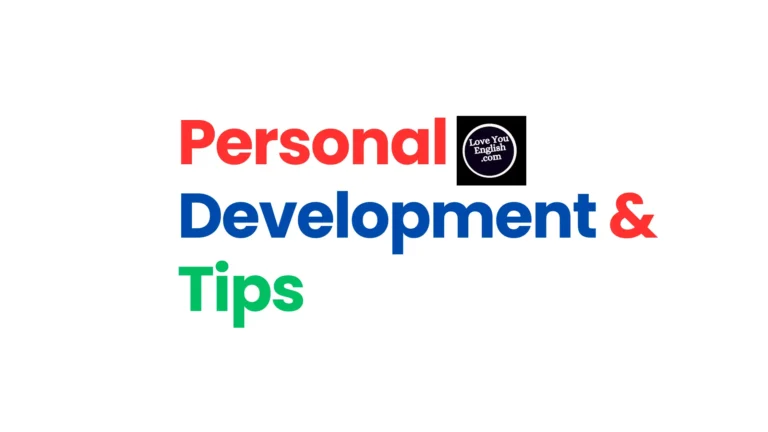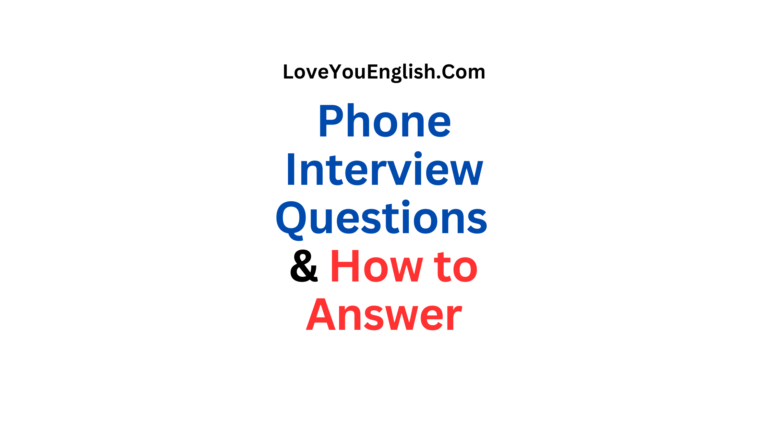10 Signs of a Bad Interviewer: Red Flags in Your Job Search
The process of a job interview can be really stressful for candidates.
You’ve worked hard on your resume, practiced your answers, and dressed nicely.
But what if you come across an interviewer who is unprofessional, unprepared, or just not good at having a good conversation?
Job seekers need to be able to recognize the signs of a bad interviewer so that they can make smart choices about potential employers and handle tough interview situations.
In this guide, I’ll go over ten clear signs of a bad interviewer.
If you know what to look for, you’ll be able to judge your interview experiences better and make good decisions about job opportunities.
Let’s get started!
Lack of Preparation
One of the most glaring signs of a bad interviewer is a lack of preparation.
This can manifest in several ways:
They haven’t reviewed your resume:
If the interviewer appears unfamiliar with your background, work history, or qualifications, it’s a clear indication that they haven’t taken the time to review your application materials.
They ask generic questions:
While some standard questions are expected, an interviewer who relies solely on generic inquiries like “What are your strengths and weaknesses?” without delving into your specific experiences may not have prepared adequately.
They seem confused about the role:
If the interviewer struggles to articulate the responsibilities of the position or how it fits into the organization, it suggests a lack of preparation or understanding of the role they’re hiring for.
Why it matters:
A prepared interviewer shows respect for your time and demonstrates the company’s commitment to finding the right candidate.
Lack of preparation can lead to a superficial assessment of your qualifications and may result in a poor hiring decision.
How to handle it:
If you encounter an unprepared interviewer, take the initiative to highlight your relevant experiences and ask thoughtful questions about the role and company.
This can help steer the conversation in a more productive direction.
Explore more interesting topics:
- 6 Ways to Build Confidence at Work
- How to Prepare for a Job Interview in English
- What Is Personal Development and Why Is It Important?
- Interview Vocabulary: Words Related to Job Interviews
- Linking Short-Term Goals to Long-Term Career Goals
Poor Time Management
Effective time management is crucial for a successful interview.
Bad interviewers often struggle with this aspect:
They’re consistently late:
If the interviewer keeps you waiting for an extended period without explanation or apology, it’s a sign of disrespect and poor planning.
They rush through the interview:
On the flip side, an interviewer who seems hurried or tries to cram everything into a short timeframe may not be giving your candidacy the attention it deserves.
They allow constant interruptions:
An interviewer who takes phone calls, responds to emails, or allows colleagues to interrupt the interview demonstrates a lack of focus and respect for the process.
Why it matters:
Proper time management ensures that both parties have an opportunity to exchange information effectively.
Poor time management can lead to a superficial evaluation and may indicate broader organizational issues.
How to handle it:
If time seems to be an issue, try to prioritize your most important points and questions.
If interruptions are frequent, you might politely ask if there’s a better time to continue the conversation.
Inappropriate or Discriminatory Questions
A major red flag in any interview is the presence of inappropriate or discriminatory questions.
Examples include:
Inquiries about your age, marital status, or plans for having children
Questions about your religious beliefs or political affiliations
Probing into your ethnic background or nationality
Why it matters:
Not only are such questions often illegal, but they also indicate a lack of professionalism and potential biases within the organization.
This behavior can be a precursor to a toxic work environment.
How to handle it:
If faced with inappropriate questions, you have several options.
You can politely decline to answer, redirect the conversation to job-related topics, or address the underlying concern if you feel comfortable (e.g., “I’m committed to fulfilling all job responsibilities, regardless of my personal life”).
Dominating the Conversation
While interviewers naturally lead the discussion, a bad interviewer may monopolize the conversation:
- They talk excessively about themselves or the company without allowing you to speak
- They answer their own questions before giving you a chance to respond
- They interrupt you frequently or finish your sentences
Why it matters:
An interview should be a two-way dialogue.
If the interviewer dominates the conversation, you lose the opportunity to showcase your skills and experiences, and they miss out on valuable information about your candidacy.
How to handle it:
Try to interject politely when there’s a pause, using phrases like “That’s interesting. May I share my experience with a similar situation?”
If the behavior persists, you might need to be more assertive in claiming your time to speak.
Lack of Engagement
Engaged interviewers demonstrate active listening and genuine interest in your responses.
Signs of a disengaged interviewer include:
- Minimal eye contact or constantly checking their phone
- Failing to ask follow-up questions or probe deeper into your answers
- Displaying closed-off body language (e.g., crossed arms, leaning away)
Why it matters:
A lack of engagement can indicate that the interviewer is not truly interested in assessing your fit for the role.
It may also suggest broader issues with employee engagement within the organization.
How to handle it:
Try to reengage the interviewer by asking thought-provoking questions about the role or company.
If the disengagement persists, it might be a sign that this isn’t the right opportunity for you.
Unprofessional Behavior
Professionalism is crucial in the interview process.
Unprofessional behavior from an interviewer can take many forms:
- Making inappropriate jokes or comments
- Sharing confidential information about other candidates or employees
- Displaying a negative attitude towards the company or colleagues
Why it matters:
Unprofessional behavior during an interview can be indicative of a problematic company culture.
It may also suggest that the interviewer lacks the judgment and discretion necessary for their role.
How to handle it:
Maintain your own professionalism throughout the interview. If the behavior makes you uncomfortable, you may need to consider whether this is an environment where you’d want to work.
Failure to Provide Clear Information
A good interviewer should be able to provide clear, concise information about the role and company.
Red flags in this area include:
- Vague or conflicting information about job responsibilities
- Inability to articulate the company’s mission or values
- Lack of clarity about next steps in the hiring process
Why it matters:
Clear communication is essential for you to make an informed decision about the opportunity.
If the interviewer can’t provide basic information, it may indicate disorganization within the company or a lack of alignment on the role’s purpose.
How to handle it:
Ask specific, targeted questions to try to gain clarity. If you still can’t get clear answers, it might be worth following up with HR or another contact at the company for more information.
Excessive Focus on Weaknesses
While it’s normal for interviewers to assess potential areas for growth, a bad interviewer may:
- Dwell excessively on perceived weaknesses in your background
- Dismiss or minimize your strengths and accomplishments
- Use an adversarial or confrontational tone when discussing your qualifications
Why it matters:
An interview should be a balanced assessment of your strengths and areas for development.
An excessive focus on weaknesses can be demoralizing and may indicate a negative company culture.
How to handle it:
Try to steer the conversation back to your strengths and how they align with the role.
If the negative focus persists, consider whether this approach reflects the company’s overall attitude towards employee development.
Lack of Knowledge About the Role or Industry
An effective interviewer should have a solid understanding of the role they’re hiring for and the industry context.
Red flags include:
- Inability to answer basic questions about the role’s responsibilities
- Lack of awareness about industry trends or challenges
- Misunderstanding of key skills or qualifications required for the position
Why it matters:
An interviewer who lacks knowledge about the role or industry may not be able to accurately assess your fit for the position.
This can lead to mismatched expectations and poor hiring decisions.
How to handle it:
If you encounter this situation, you might try to share your own understanding of the role and industry to fill in the gaps.
However, be cautious about accepting a position where the hiring manager seems ill-informed about the job requirements.
Failure to Sell the Opportunity
While the primary purpose of an interview is to assess your qualifications, a good interviewer should also be able to articulate why the role and company are attractive.
Signs of failure in this area include:
- Inability to describe growth opportunities within the company
- Lack of enthusiasm when discussing the company culture or mission
- Failure to address your questions about why you should consider the role
Why it matters:
The interview is your opportunity to assess whether the job and company are a good fit for your career goals.
An interviewer who can’t or won’t sell the opportunity may indicate deeper issues with employee satisfaction or retention.
How to handle it:
Ask direct questions about what makes the company a great place to work and the potential for growth in the role.
If you can’t get satisfactory answers, it might be a sign to explore other opportunities.
Conclusion
It’s crucial for job seekers to be able to spot the signs of a bad interviewer.
Even if you notice a couple of warning signs, it doesn’t automatically mean you should give up on the job.
But if you see many red flags or serious problems, it’s important to take a step back.
Keep in mind that interviews are a chance for both you and the company to see if it’s a good match.
If the interviewer seems off, it could be a sign of bigger problems within the organization, like bad management or a negative work environment.
If you encounter a bad interviewer, consider the following steps:
Reflect on the experience: Was it a one-off situation, or does it seem to reflect broader issues within the company?
Seek additional information: If possible, try to speak with other employees or research the company culture to get a more comprehensive view.
Trust your instincts: If the interview experience left you feeling uncomfortable or uncertain, it’s okay to prioritize your well-being and consider other opportunities.
Provide feedback: If appropriate, consider providing constructive feedback to the company’s HR department about your interview experience. This can help them improve their processes for future candidates.
Learn from the experience: Use the encounter as a learning opportunity to refine your own interview skills and to clarify what you’re looking for in an employer.
In the end, the main aim of looking for a job is to discover a position and a company where you can do well.
If you know what to look for in a bad interviewer, you can make smarter choices about your career and improve your odds of ending up in a good, encouraging workplace.
Always remember, you should have an interview process that is polite, expert, and helpful.
Don’t accept anything less as you strive for career progress and happiness.
Be confident, believe in yourself, and keep looking until you come across an opportunity that matches your beliefs and aspirations.






